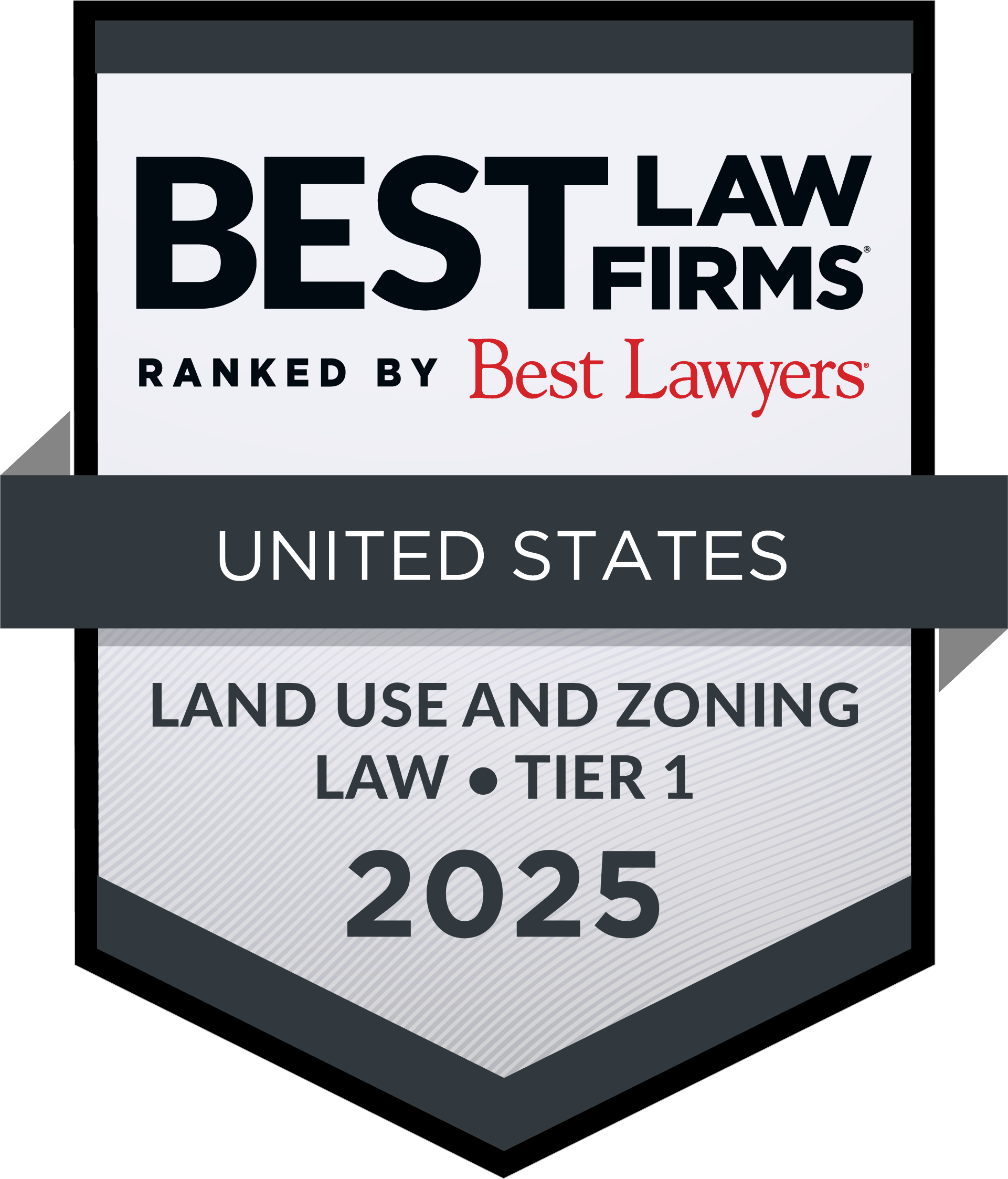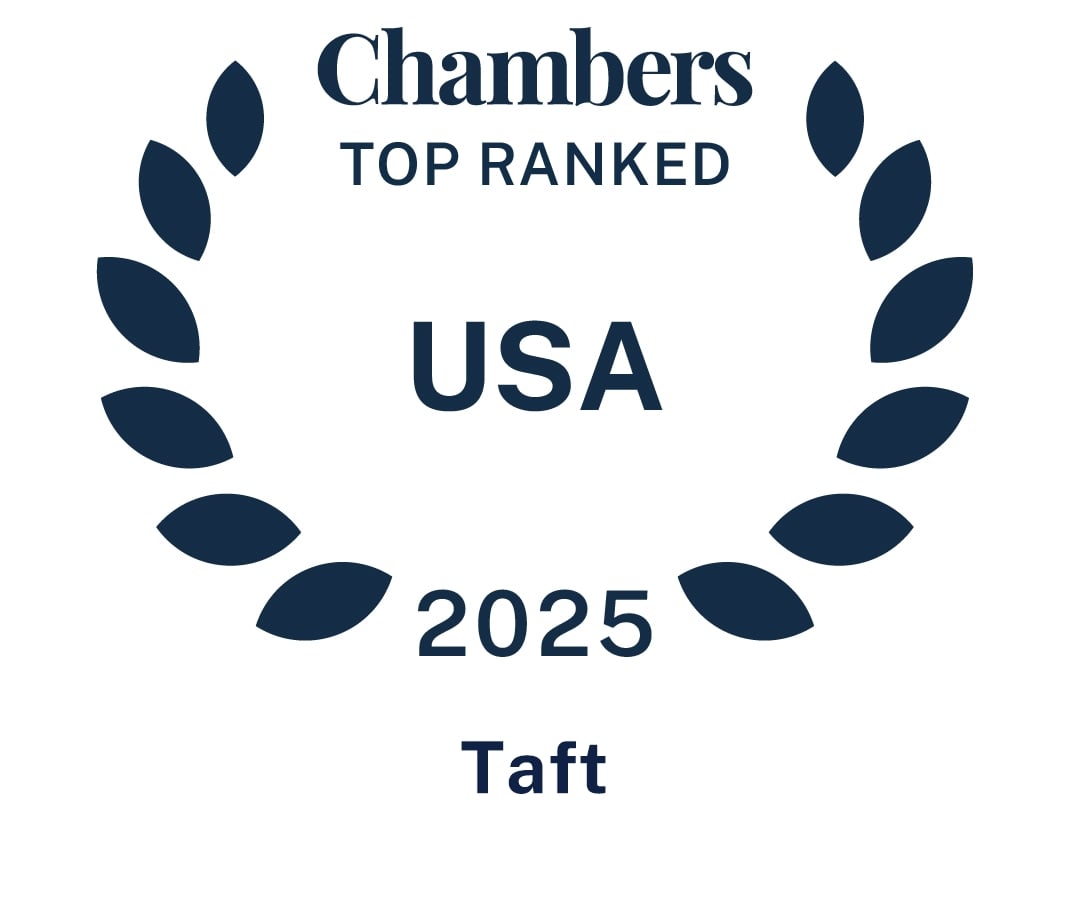News
Land Use and Zoning
Land Use and Zoning
The use and development of private property is subject to ever-increasing regulation by all levels of government. Taft’s Land Use and Zoning practice attorneys assist clients in taking development plans through the complexities of the regulatory process. We have obtained governmental approvals from the City of Chicago and scores of suburban jurisdictions, the City of Indianapolis, and communities throughout the State of Indiana, the cities of Cleveland, Columbus, Dayton, and Minneapolis along with their neighboring suburban jurisdictions, enabling clients to construct projects, large and small, of every type and style.
In addition, our attorneys have secured approvals for unique rehabilitation projects and have assisted public utility clients in the expansion of their service networks. Although the emphasis of the group’s work is the representation of private sector clients, we have also acted as chairs of and counsel to municipal zoning authorities, and land use counsel on behalf of the City of Chicago, the Chicago Park District, various counties and municipalities in northern Illinois, the Metropolitan Pier and Exposition Authority, the greater Midwest, and the United States government.
Scope of Practice
Taft’s Land Use and Zoning practice encompasses a broad scope of substantive areas that are at the nexus of the development process and government regulation. Our attorneys have substantial experience in all phases of that activity.
Zoning/Tax Increment Financing
We counsel clients on the applicability of municipal zoning ordinances as they impact proposed development plans, devising strategies that lead to the quickest and most cost-effective manner of gaining needed approvals. In those instances where it is not possible to structure a development plan within the parameters of permitted uses, we engage in the various procedures necessary to begin development, including planned developments, rezonings, text amendments, administrative adjustments, special-use applications, variances/variation requests, and appeals from the decisions of local zoning administrators. We are also experienced at handling matters under the Lake Michigan and Chicago Lakefront Protection Ordinance, Chicago’s Planned Manufacturing District Ordinances, the Regional Center of the City of Indianapolis, Indianapolis Historic Preservation Commission districts, and specialized zoning/design ordinances.
Attorneys also have substantial experience gaining tax increment financing and property tax abatement in conjunction with meeting the zoning needs of clients. In central Ohio, we prevailed against a competitive developer opposition to gain zoning approval for a major mall, defending litigation, and coordinating a political team which defeated a competitor funded voter referendum.
Subdivision Approvals
Modern municipal subdivision regulations have become increasingly complex and impose ever higher standards on developers. Our attorneys are veterans of this process, possessing the technical expertise to guide a proposed subdivision through the approval process, and to negotiate issues or language subject to interpretation to the maximum benefit of our clients.
Annexation
Owners will frequently find it advantageous to gain the benefits of municipal services for their property. In voluntary annexation situations, we help clients assess the impact of proposed regulations on existing improvements or on the development potential of unimproved property. By using annexation agreements, we have mitigated or eliminated adverse regulatory impacts. Such agreements are tailored to fit the unique needs of each site. In cases where municipalities seek to annex property against an owner’s wishes, we are well-versed in opposing such efforts.
Development Incentives
We have assisted clients in obtaining benefits under various federal, state, and local economic development and tax incentive programs available to encourage development. Among these programs are tax increment financing (TIF) districts, Urban Development Action Grants (UDAGs), enterprise and empowerment zone legislation, and incentive-based property tax classifications. We have significant experience crafting development incentives for governmental jurisdictions which do not have municipal powers, such as townships in the State of Ohio.
Impact Fees
Local governments often attempt to finance municipal services by imposing fees upon private owners for the privilege of developing their property. Our attorneys have negotiated with municipalities regarding the manner, timing, and extent of such fees.
Vacation of Public Ways
Vacation is the statutory process used by municipalities to convey title to public ways to private property owners, who in exchange may compensate the municipality. Our attorneys have been successful in obtaining reductions in the amount to be paid for such property, which is arrived at via a complex appraisal process.
Use of Public Ways and Air Rights
We frequently assist developers in obtaining permanent rights to use subsurface space and air rights above public ways. This process includes the preparation of appropriate documents and the resolution of technical issues with various municipal agencies.
Historic Landmark Issues
Federal, state, and local historic landmark regulations may impose significant constraints upon the development or redevelopment of property. Our attorneys often assist clients in opposing efforts to designate their properties as historic landmarks or to include them in historic landmark districts. We also provide counsel on conservation easements. In cases where buildings have been designated as landmarks, we have obtained approvals allowing clients to redevelop such buildings within the confines of applicable historic landmark regulations.
Building Code Issues
Our attorneys regularly assist clients in situations where violations of municipal building codes have been alleged. This work typically involves negotiation with municipal authorities, development of mitigation plans and agreements, and court appearances in lawsuits based upon alleged code violations. This experience also facilitates clients who propose renovation of older buildings and throughout the permitting process.
State and Federal Regulation
Real estate development, particularly that involving the construction of large-scale projects, is often subject to municipal, state, and federal regulation. Taft’s land use attorneys have successfully represented clients before a variety of federal, state and municipal regulatory agencies, including the Federal Aviation Administration, the Army Corps of Engineers, the US, Ohio and Indiana Environmental Protection Agencies, and the Illinois Department of Transportation, the Indiana Department of Environmental Management, in connection with developments that require multi-government approvals.
Related Practices
Awards

Ranked National Tier 1 by Best Lawyers® “Best Law Firms” for Land Use and Zoning Law
(2016 – 2025)
Ranked Metropolitan Tier 1 in Chicago and Columbus by Best Lawyers® “Best Law Firms” for Land Use and Zoning Law

Ranked in Chambers USA: America’s Leading Lawyers for Business for Real Estate: Zoning/Land Use
Recognized by Chambers USA in Illinois for Real Estate: Zoning & Land Use Law (2021 – present)
Notable Matters
- Handled the purchase, sale, and land use entitlements, including approval of a new planned unit development for a five-story mixed-use building with 265 residential units and retail on the bottom two floors, including a parking structure.
- Provided land use counsel for zoning entitlements for a new town home development adjacent to an existing multi-family development owned by the client.
- Managed the acquisition, disposition, and redevelopment of real property for reuse, revitalization, and/or restoration that was complicated by the presence of environmental contamination.
- Represented a large energy utility company in the sale of former coal-fired power plant assets.
News
Butler Recognized in Crain's Chicago "40 Under 40" List News
Taft Partner Butler Secures TIF Approval for $183.5M Adaptive Reuse Project at 105 West Adams Law Bulletins
Chicago Expands Eligibility for Ground Floor Commercial-to-Residential Conversions News
Ulbricht to Speak at NBI Seminar on Land Use and Zoning Law Bulletins
Chicago Streamlines Development Incentives for Transit-Oriented Developments Law Bulletins
Chicago Eliminates Parking Requirements for Transit-Served Locations











































